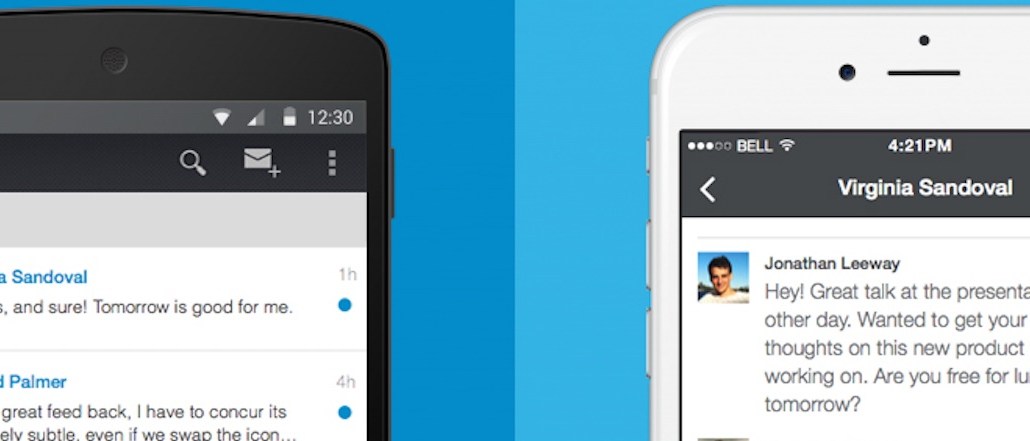Secure your place at the Digiday Publishing Summit in Vail, March 23-25

LinkedIn’s miserable messaging tool is getting an upgrade.
Users griped about the clunky and confusing interface that made it difficult to tell if messages were responded to, bugs preventing notes from being sent and an overall ugly experience.
That’s about to change with a top-to-bottom redesign that even the social network admits is a long time coming. “The wait is over,” LinkedIn said on its blog today announcing the changes, with the word “finally!” in the post’s title.
Users will eventually see a new messaging feature that resembles Facebook Messenger’s desktop version. Messages are designed in a “chat-style interface,” making it easier to organize, and LinkedIn revamped its pesky email notifications to alert people when they have new messages.
Of course, what would a messaging tool would be without the ability to express emotions in GIFs, emojis and stickers, which are now supported. The new interface will start rolling out today to desktop, iOS and Android users.
Here’s what the new version looks like:

For future iterations, LinkedIn appears to be taking a page from Gmail, with new tools including “intelligent messaging assistants that can help suggest people you should message.”
LinkedIn also hinted that it’s experimenting with video-to-video conversations, which could possibly make it a worthwhile competitor to Facebook Messenger or Google Hangouts.
Private messaging has been area social networks have been focusing on lately. Twitter recently dropped the 140-character limit on Direct Messages, Facebook is rolling out a “virtual text assistant in Messenger and Google christened Hangouts with a new look for desktop users.
Image courtesy of LinkedIn.
More in Media

Why more brands are rethinking influencer marketing with gamified micro-creator programs
Brands like Urban Outfitters and American Eagle are embracing a new, micro-creator-focused approach to influencer marketing. Why now?

WTF is pay per ‘demonstrated’ value in AI content licensing?
Publishers and tech companies are developing a “pay by demonstrated value” model in AI content licensing that ties compensation to usage.

The case for and against publisher content marketplaces
The debate isn’t whether publishers want marketplaces. It’s whether the economics support them.





